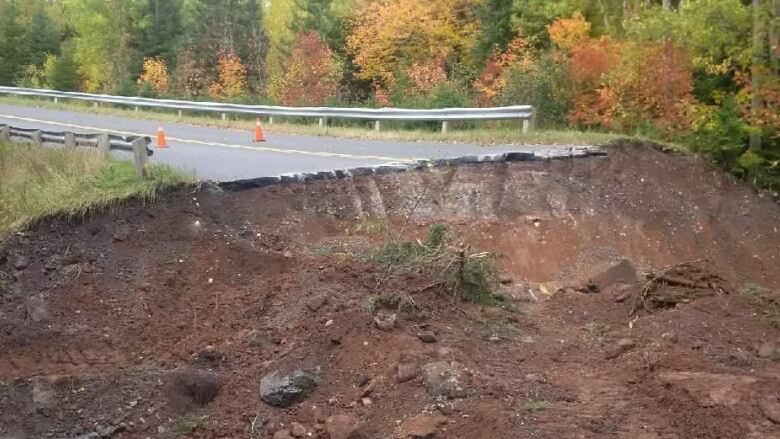Damage to Nova Scotia roads and culverts an estimated $3M
Full cost to repave, rebuild roads still unknown, but federal disaster relief threshold likely met

Last weekend's flooding on Cape Breton Island is going to eat into Nova Scotia's anticipated $19-million surplus.
According to a preliminary estimate by officials in the Nova Scotia Department of Transportation and Infrastructure Renewal, the torrential rains caused between $2.5 million and $3 million worth of damage to roads and culverts maintained by the province.
The $3-million figure is significant because it meets the threshold to able to access the federal government's disaster relief program.
Premier Stephen McNeil told reporters Friday that a letter was being drafted to send to Ralph Goodale, the federal minister of public safety and emergency preparedness. That letter will formally request federal aid.
"In our own highway infrastructure we'll be above the $3-million threshold," said the premier.

Money from Ottawa takes long time
In the past, it has taken years to get Ottawa to come through with disaster relief money. It took almost a decade for the province to be reimbursed for damages caused by Hurricane Juan in September 2003 and White Juan in February 2004.
White Juan dumped 50 to 95 centimetres of snow on the province during a 48-hour period, according to Environment Canada.
Nova Scotia's minister responsible for the Emergency Management Office, Zach Churchill, said it was up to the province to pay its bills first, then get compensated later.
"The way that program works is the province will front the money, and we're going to do that as quickly as possible once we start getting applications in, and then dollars will be reimbursed to us about 50 cents on the dollar after the $3-million threshold from the federal government," said Churchill.
"So that might take a long time but the money will flow as soon as quickly as possible."












_(720p).jpg)


 OFFICIAL HD MUSIC VIDEO.jpg)
.jpg)



























































































